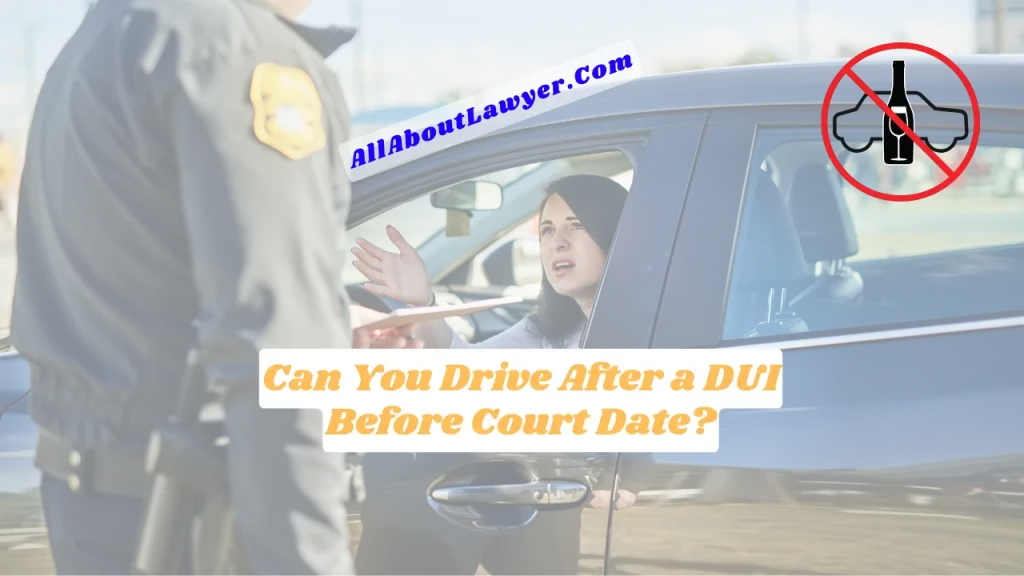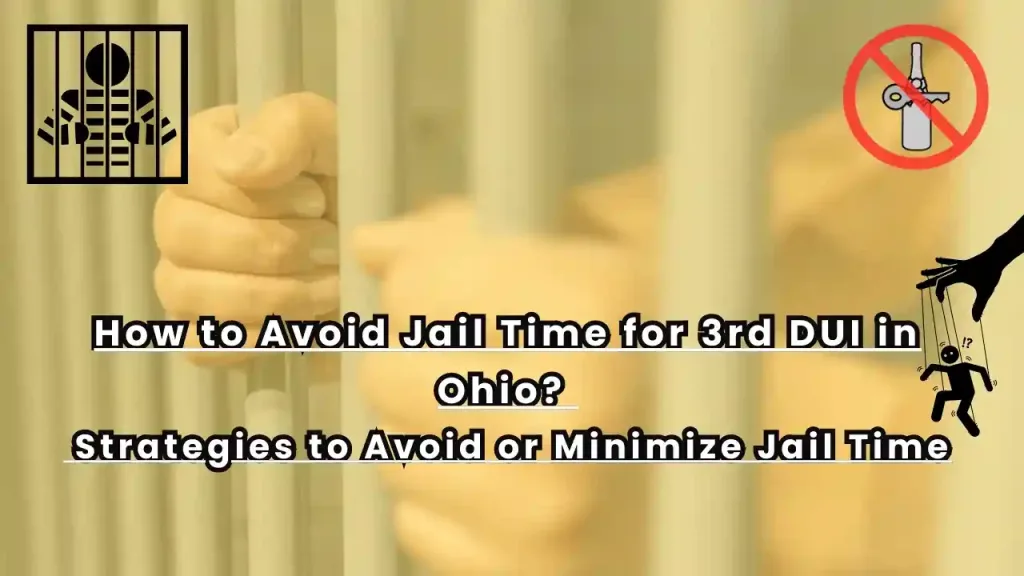Can You Drive After a DUI Before Court Date?
Driving under the influence (DUI) is a serious offense with immediate and lasting impacts on personal freedoms, finances, and future opportunities. One of the first questions that comes up after a DUI arrest is whether you’re allowed to drive before your court date. After all, most people rely heavily on their ability to drive for work, family obligations, and daily needs. Losing that privilege can quickly add extra stress to an already challenging situation.
This article provides an in-depth look at what happens to your driving rights after a DUI arrest and if you can continue driving before facing the court. We’ll explore how various states handle DUI arrests and the options for restricted licenses, outline practical steps to help you navigate this period, and highlight the critical role of legal representation in protecting your rights.
Table of Contents
In understanding the nuances of post-DUI driving privileges, you can make more informed decisions and stay compliant with state laws while managing your responsibilities.
What Happens After a DUI Arrest?
After a DUI arrest, the legal process typically involves several immediate actions, many of which directly impact your ability to drive.

Immediate Consequences of a DUI Arrest
In many states, law enforcement will issue an immediate, temporary license suspension following a DUI arrest. Known as an “administrative license suspension,” this is a quick action taken before the court case to discourage driving under the influence. Some states allow you to drive for a limited period after the arrest (e.g., 30 days) until the official suspension begins. During this time, it’s essential to gather information on your case and evaluate your legal options.
Variation by State
DUI regulations vary significantly between states. For instance:
- California: Initiates an automatic license suspension within 30 days of a DUI arrest. Drivers have a 10-day window to request a hearing to contest this suspension.
- Florida: Imposes an immediate suspension, but you may apply for a temporary “hardship” license.
- Texas: Also allows a limited driving period and the option to request an Administrative License Revocation (ALR) hearing within 15 days.
Importance of Legal Representation
Hiring an attorney immediately after a DUI arrest can make a difference in protecting your driving privileges. An attorney may help you secure a restricted license, request a hearing to delay or overturn the suspension, and work toward a more favorable case outcome.
Your Driving Privileges Post-Arrest
Whether you can continue to drive after a DUI arrest before your court date largely depends on your state’s laws and the specifics of your case.
License Suspension: Administrative vs. Judicial
Most states impose administrative license suspensions automatically when a DUI is reported, independent of court procedures. These suspensions are often triggered by failing or refusing a blood alcohol content (BAC) test at the time of arrest. A judicial suspension, however, occurs as part of a court ruling after the case is resolved, potentially resulting in an extended suspension period.
Read also: Where Do DUI Offenders Go to Jail?
Restricted or Temporary Licenses
Depending on the state, you may be eligible for a restricted or temporary license, which allows you to drive for specific purposes (e.g., to work, school, or medical appointments). This is generally offered as a compromise to enable individuals to maintain basic responsibilities while awaiting trial. Eligibility and availability vary significantly, so it’s crucial to understand your state’s specific rules.
Eligibility Requirements
Common eligibility requirements include having a clean driving record prior to the incident, proving a need for work-related transportation, and, in some cases, installing an ignition interlock device. Meeting these requirements is essential for drivers hoping to retain some level of driving freedom.
Can You Drive After a DUI Before Your Court Date?
Driving after a DUI arrest but before a court date involves understanding both the legal restrictions and the risks involved.
Key Conditions Impacting Driving Privileges
Several factors influence whether you’re legally allowed to drive during this period:
- State Law: As previously mentioned, each state has different rules regarding administrative suspension.
- License Status: Drivers may receive a temporary license pending the court date but must comply with any state-imposed restrictions.
- Conditions of Release: In some cases, the court may set additional conditions that limit driving, such as requiring you to refrain from alcohol or undergo substance abuse assessments.
Legal Implications of Driving During This Period
Driving while your license is suspended or without a valid permit is a serious offense. In many states, driving under suspension leads to additional penalties, including longer suspension periods, higher fines, and potential jail time.
State-by-State Overview
- California: Allows temporary restricted licenses after DUI arrests; requires an ignition interlock device for certain cases.
- Florida: Permits a hardship license if specific requirements are met.
- Texas: Enables “occupational” licenses for work, school, and essential errands.
- New York: Offers a “conditional” license under specific conditions if the driver attends an assessment program.
Understanding the restrictions specific to your state and knowing your eligibility for restricted licenses can help you avoid additional penalties.
How to Obtain a Restricted or Temporary License
If you qualify, a restricted or temporary license allows limited driving privileges under certain conditions.
Application Process
To apply for a restricted license, you generally need to:
- Submit an application through the state’s Department of Motor Vehicles (DMV) or the appropriate agency.
- Pay any required fees for processing the license.
- Agree to install an ignition interlock device (IID) if mandated by your state.
- Provide proof of insurance and, sometimes, an affidavit from your employer verifying the need for transportation.

Eligibility Criteria
Restricted license eligibility varies by jurisdiction. Generally, you must not have a prior DUI on your record within a specific timeframe, demonstrate a need for work or essential travel, and commit to any court-mandated requirements.
Real-World Examples
For instance, in California, a first-time DUI offender can apply for a restricted license with proof of enrollment in a DUI program. In Texas, an occupational license allows limited driving if the driver can prove an essential need, such as attending work or school.
Factors That Could Impact Your Ability to Drive
Several key factors affect whether you’ll be able to drive after a DUI arrest:
Legal History and Prior Offenses
Drivers with previous DUI arrests or other criminal history may face stricter restrictions. Repeat offenses often result in harsher penalties and fewer chances for restricted or temporary licenses.
Severity of DUI
The details of the arrest, such as a high BAC level or involvement in an accident, often influence the severity of the penalty. Many states impose stricter restrictions if minors were present in the vehicle or if the BAC was well above the legal limit.
Jurisdictional Differences
Because laws vary widely, consulting local regulations or legal assistance is critical. This will provide clear guidance on restrictions that apply to your area and options available to you.
Practical Tips for Handling a DUI Charge
Coping with the aftermath of a DUI arrest involves understanding legal requirements and planning ahead.
Immediate Actions
- Comply with All Court Requirements: Follow any orders or restrictions set by the court to avoid additional penalties.
- Request a Hearing: If your state allows it, consider requesting an administrative hearing to appeal the license suspension.
- Explore Alternatives: Set up alternative transportation plans in case you lose your driving privileges.
Working with an Attorney
An experienced attorney can help you navigate court proceedings, contest administrative suspensions, and negotiate for restricted driving privileges. In many cases, a lawyer can expedite the process of securing a temporary license, provided you meet the necessary qualifications.
Setting Up a Support System
Plan ahead by arranging alternative transportation, such as ridesharing services, carpooling, or public transit. Having a backup plan can ease the logistical strain of losing your license temporarily.
Conclusion
A DUI arrest brings significant challenges, especially regarding driving privileges. While some states offer restricted or temporary licenses, eligibility is often strict and based on various factors, including legal history and BAC levels at the time of the arrest. Understanding the administrative process and taking steps like securing legal representation can help you navigate this challenging time with a clearer path forward.
Remember, DUI laws vary significantly by state, so checking your local regulations or consulting with an attorney can provide you with the best guidance. Taking proactive steps to comply with all legal requirements and exploring options for restricted licenses can help you maintain essential driving privileges, reduce stress, and manage responsibilities effectively during this period.
Also Read: How Many Years in Jail for Drunk Driving and Killing Someone?
FAQs
Can I drive immediately after a DUI arrest?
Initially, you may receive a temporary permit valid for a limited time, typically 7-30 days depending on your state.
What happens if I’m caught driving while suspended?
Driving while suspended can result in additional criminal charges, fines, and extended suspension periods.
How do I request an administrative hearing?
Submit a written request to your state’s Department of Motor Vehicles within the specified deadline (usually 10-15 days after arrest).
Can I get a restricted license for work?
Many states offer restricted licenses for essential travel, but eligibility varies based on circumstances and state laws.
What documentation do I need to keep while driving on a temporary permit?
Keep your temporary permit, arrest documentation, and any related DMV paperwork with you whenever driving.
About the Author

Sarah Klein, JD, is a former criminal defense attorney with hands-on experience in cases involving DUIs, petty theft, assault, and false accusations. Through All About Lawyer, she now helps readers understand their legal rights, the criminal justice process, and how to protect themselves when facing charges.
Read more about Sarah
About the Author

Sarah Klein, JD, is a licensed attorney and legal content strategist with over 12 years of experience across civil, criminal, family, and regulatory law. At All About Lawyer, she covers a wide range of legal topics — from high-profile lawsuits and courtroom stories to state traffic laws and everyday legal questions — all with a focus on accuracy, clarity, and public understanding.
Her writing blends real legal insight with plain-English explanations, helping readers stay informed and legally aware.
Read more about Sarah
